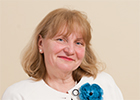Arupärimine Maarjamaa ühendkooli kohta (nr 710)
Istung: XV Riigikogu, V istungjärk, täiskogu istung
Kuupäev: 2025-03-17 20:08
Osalevad Poliitikud:
Sõnavõtte kokku: 60
Koosseis: 15
Päevakorra kestus: 1h 3m
AI kokkuvõtted: 60/60 Sõnavõtud (100.0%)
Analysis: Structured Analysis
Poliitikute Kõneaeg
Poliitikud
Analüüs
Kokkuvõte
Riigikogu neljas päevakorrapunkt käsitles 27.01.2025 esitatud arupärimist Maarjamaa ühendkooli kohta (arupärimise nr 710). Esindajaks arupärimises on Helle-Moonika Helme. Arupärimine tõstatab küsimused seitsme hariduslike erivajadustega õpilaste kooli ühendamise kohta 2025. aasta suvel ning keskendub võimalikele mõjudele õpilastele, õpetajatele ja koolide personali struktuurile. Pööratakse tähelepanu nii bürokraatia vähendamisele, ühtsele dokumentatsioonile ja IT‑lahenduste koondamisele kui ka majanduslikele küsimustele – 300 000 euro suurusele kokkuhoiule ning konkreetsetele ametikohtade loomisele ühendkooli raames. Arutelu hõlmab ka vanemate, hoolekogude ja õpilaste esindajate kaasamist ning ühtse vastuvõtu ja toe süsteemi loomist, mis peaks parandama koolide kvaliteeti ja õppe toimivust ning vähendama laste liigset koolide vahel liikumist.
Tehtud otsused 1
Ei tehtud konkreetseid otsuseid; arupärimise vastused ning edasine menetlus jätkub ning minister esitlusele ja selgitustele tuginemisel koolide toimimise ja reformi edenemise kohta on oodatud.
Aktiivseimkõneleja
Kõige aktiivsem esineja oli Helmen Kütt (vasakpoolne erakond). Ta esitas põhjalikke küsimusi kaasava hariduse teemadel ning rõhutas lapse heaolu ja ühendkooli praktika ning hoolekogu kaasatuse olulisust, esindades suurt rolli opositsioonis kui kriitiline kaasamisteadlik arutelu osaline.
Aseesimees Toomas Kivimägi
AI kokkuvõte
Võtame neljanda päevakorrapunkti käsile, milleks on 27.01.2025 esitatud arupärimine nr 710 Maarjamaa ühendkooli kohta, esitajateks on Helle-Moonika Helme, Martin Helme, Siim Pohlaku, Rene Koka, Rain Epleri, Evelin Poolametsa ja Arvo Alleri, ning arupärijate nimel teeb ettekande Riigikogu liige Helle-Moonika Helme.

Helle-Moonika Helme
Profiileerimine Eesti Konservatiivse Rahvaerakonna fraktsioonAI kokkuvõte
Helme-Moonika Helme tänab eesistujat ja ministrit ning märgib, et arupärimisega käsitletakse 2025. aasta suvel plaani liita seitse erivajadustega õpilaste kooli, kuid vastused on liiga üldsõnalised ja bürokraatlikud ning ta kutsub ministrit protsessi ja prioriteete selgitama, et koolide kogukonnad mõistaksid, kas oluline on lapsed ja kollektiivsed suhted või lihtsalt riigi raha kokkuhoid.
Aseesimees Toomas Kivimägi
AI kokkuvõte
Kõigi teie küsimustele vastab haridus- ja teadusminister Kristina Kallas.
Haridus- ja teadusminister Kristina Kallas
AI kokkuvõte
Kristina Kallas kirjeldas, et seitsmest koolist moodustub üks ühendkool ühtse juhtimise ja õppekorraldusega, mis tagab kvaliteetse õppe, ühtse vastuvõtu ning bürokratiale vähem koormust, konsolideerib IT-süsteeme ning loob kaks uut ametikohta (õppejuht-metoodik ja võrgustiku juht), hoolekogu töö koostatakse üheks kogu kooli jaoks ning õpetajate tööjaotust ning õppekohtade iseseisvust ei vähendata oluliselt, kuid 300 000 eurot kokkuhoiu suunatakse õpilastega tegelevate töötajate palkade ja tugispetsialistide töötingimuste parandamiseks.
Aseesimees Toomas Kivimägi
AI kokkuvõte
Aseesimees tänab ja palub Tõnis Lukast esitada küsimusi.

Tõnis Lukas
Profiileerimine Isamaa fraktsioonAI kokkuvõte
Isamaa tõi välja, et umbes 300 000 euro suurune kokkuhoid peaks tulema juhtide koondamisest, kuid muudatuste põhjus on kvaliteet — kuigi koolid on seni olnud hästi juhitud ja kvaliteetsed, on vaja õppejuhte välja vahetada või koondada ühte kohta, et tagada selle koha jaoks kvalifitseeritud töötaja.
Aseesimees Toomas Kivimägi
AI kokkuvõte
Aseesimees Toomas Kivimägi tänab kõiki.

Tõnis Lukas
Profiileerimine Isamaa fraktsioonAI kokkuvõte
Tõnis Lukas arutleb uudise üle ja küsib, kuidas võib olla nii, et esialgne kvaliteet on hea, kuid seda tuleb parandada uue õppejuhiga, ning kas kuulajad on sellest kursis.
Aseesimees Toomas Kivimägi
AI kokkuvõte
Aseesimees Toomas Kivimägi tänab Tõnis.

Tõnis Lukas
Profiileerimine Isamaa fraktsioonAI kokkuvõte
Peamine mõte on, et koolides pole vaja eraldi seitset direktorit ja seitset õppejuhti, sest mõnes koolis on tegelikult direktori tasemel juhtimine ühendatud.
Aseesimees Toomas Kivimägi
AI kokkuvõte
Aseesimees Toomas Kivimägi tänab Tõnis ja vabandab, öeldes, et teised kolleegid pahanduvad, kui ta neile midagi teeb.

Tõnis Lukas
Profiileerimine Isamaa fraktsioonAI kokkuvõte
Tõnis Lukas märgib, et puudub täiskohaga õppejuht ning seetõttu ei saa koondada 14 kohta, kuna koondatavate kohtade arv on palju väiksem, ja küsib, kas 300 000 euro suurune kokkuhoid tuleb ikka välja.
Haridus- ja teadusminister Kristina Kallas
AI kokkuvõte
Kallas ütles, et koolide õppe kvaliteedile etteheiteid ei ole, kuid tulevik on murelik, sest õpilaste arv kahaneb ning seitsmes eraldi koolis kvaliteedi tagamiseks on vaja üht õppejuht-metoodikut, kes jälgiks kvaliteeti kõigis koolides ja aitaks vältida kvalifitseeritud õpetajate ning direktorite puudust.
Aseesimees Toomas Kivimägi
AI kokkuvõte
Toomas Kivimägi esitab René Kokkile lühikese palve.

Rene Kokk
Profiileerimine Eesti Konservatiivse Rahvaerakonna fraktsioonAI kokkuvõte
Rene Kokk küsib hariduspoliitika legitiimsust, tuues välja koalitsiooni toetusnumbrite languse (alla 19%), ning kritiseerib plaani sulgeda või ühendada teenindus- ja kutsehariduskoolid ning lõpetada keskkonnaharidus, rõhutades, et otsused peavad olema rahvale arusaadavad ja kasulikud.
Haridus- ja teadusminister Kristina Kallas
AI kokkuvõte
Kallas tõdeb, et keskkonnahariduse kriitika on segadust tekitav, kuna ühelt poolt nõutakse selle lõpetamist ja raha raiskamise lõpetamist, kuid teisalt öeldakse, et seda siiski tuleks jätkata keskkonnateemalise õpetuse raames.
Aseesimees Toomas Kivimägi
AI kokkuvõte
Aseesimees Toomas Kivimägi esitab lühikese palve: palun korrake.
Haridus- ja teadusminister Kristina Kallas
AI kokkuvõte
Ta mainis lastele mõeldud rohepöördega seotud haridust ja ütles, et ei oska vastata, kuna küsimus ei puudutanud otseselt hariduspoliitikat.
Aseesimees Toomas Kivimägi
AI kokkuvõte
Aseesimees Toomas Kivimägi palub Helmen Kütti kõnelema.

Helmen Kütt
Profiileerimine Sotsiaaldemokraatliku Erakonna fraktsioonAI kokkuvõte
Helmen Kütt küsib, kas enne koolide ühinemist tehti ühendamisplaanieelse analüüsi ja kus see on leitav, sest hoolekogu juhid ja lapsevanemad soovivad sellest teada.
Haridus- ja teadusminister Kristina Kallas
AI kokkuvõte
Riik kui koolipidaja soovib seitsme kooli all ühtset juhtimist, ühise õppekavastrateegia ning ühe ukse poliitika abil tagada pikaajalise kvaliteedi ning lapse vajadustele vastava toe, arvestades kahanenud laste arvu ja kvalifitseeritud õpetajate puudust.
Aseesimees Toomas Kivimägi
AI kokkuvõte
Kõne alguses paluti Anti Poolametsa.

Anti Poolamets
Profiileerimine Eesti Konservatiivse Rahvaerakonna fraktsioonAI kokkuvõte
Anti Poolamets rõhutab, et kokkuhoiuga maapiirkondade arvelt ei tohi elu maal kokku tõmmata ja inimesed kolivad eemale, ning ta küsib viimast infot Vana-Vigala kooli erivajadusega (HEV) õpilaste jätmise kohta.
Haridus- ja teadusminister Kristina Kallas
AI kokkuvõte
Vana-Vigala kool liidetakse Kehtna Kutsehariduskeskusega ja jääb Vana-Vigala õppekohaks, kus õpetatakse erialasid, mida mujal ei õpetata, ning tulevikuks peab kool arendama unikaalseid, Eestis mujal kättesaamatuid erialasid koostöös riigi koolipidajaga ja Raplamaa ettevõtjate ühendustega.
Aseesimees Toomas Kivimägi
AI kokkuvõte
Aseesimees Toomas Kivimägi kutsub Arvo Alleri kõnelema.

Arvo Aller
Profiileerimine Fraktsiooni mittekuuluvad Riigikogu liikmedAI kokkuvõte
Arvo Aller väidab, et loodusharidus on praktiline tegevus, mitte rohepöörde propaganda, ning kritiseerib seitsme kooli ühendamist ja keskset juhtimist kui ohtu koolide kvaliteedile ning küsib, kuidas ühe juhiga parem kvaliteet tagatakse.
Haridus- ja teadusminister Kristina Kallas
AI kokkuvõte
Haridus- ja teadusminister Kristina Kallas ütles, et kuigi praegu ei ole koolide õppe kvaliteedile pretensioone, on negatiivsed trendid mure tekitavad ning kvalifitseeritud õpetajate ja õppejuhtide leidmine muutub järjest raskemaks, mistõttu tuleb sekkuda ja kasutada keskset juhtimist, et kvaliteet pikas perspektiivis säilib.
Aseesimees Toomas Kivimägi
AI kokkuvõte
Aseesimees Toomas Kivimägi kutsus Kert Kingo kõnelema.
Kert Kingo
AI kokkuvõte
Kert Kingo süüdistab, et valimispettusega ministriks saanud poliitik hakkab laamendama haridusvõrgustikus, lammutab koolisüsteemi, sulgeb maakoole ja HEV-koole ning teeb seda vaid tehniliste selgituste varjus, küsides lõpuks, kelle jaoks need koolid tegelikult on ja mis parem tulemus nende vanematele ja õpilastele saab.
Haridus- ja teadusminister Kristina Kallas
AI kokkuvõte
Kristina Kallas kinnitab, et maakoolide sulgemisi ei toimu ning nende säilimiseks rakendatakse toetusmeetmeid, mis tagavad, et seitse väikest kooli jäävad alles, ning reformi järel on üks keskne koht, kuhu pöörduda ja kus õpetajad teavad, millises koolis milline tugi on saadaval.
Aseesimees Toomas Kivimägi
AI kokkuvõte
Aseesimees Toomas Kivimägi kutsus proua ministri rääkima, märkides, et saalis käib väike debatt ja tuleb toimida kordamööda, ning palus ministril jätkata, kui ta soovib.
Haridus- ja teadusminister Kristina Kallas
AI kokkuvõte
Kristina Kallas rõhutas, et erivajadusega lapsele peab toe kättesaadavus olema ilma vanemate liigse energiakulutuseta ning et järgmise 20 aasta jooksul tagatakse kvaliteetne toetus ja jätkub kvaliteetne haridus nende koolide kaudu, muutes protsessid vanematele lihtsamaks.

Mart Helme
Profiileerimine Eesti Konservatiivse Rahvaerakonna fraktsioonAI kokkuvõte
Mart Helme kritiseerib demagoogiat, rõhutab koolide vahel valiku ja vabaduse olulisust ning süüdistab ministrit Rene Kokat selles, et ta ei tee vahet rohepöörde ja keskkonnahariduse vahel ning viitab koolide järkjärgulikule sulgemisele.
Aseesimees Toomas Kivimägi
AI kokkuvõte
Aseesimees Toomas Kivimägi palub Mart Helmet tulla ette.
Aseesimees Toomas Kivimägi
AI kokkuvõte
Kõne on tänuavaldus heale kolleegile.

Mart Helme
Profiileerimine Eesti Konservatiivse Rahvaerakonna fraktsioonAI kokkuvõte
Mart Helme ütleb, et nende töö on lõhkumise ja lammutamise töö ning nad panevad kõik kinni.
Aseesimees Toomas Kivimägi
AI kokkuvõte
Ta väljendab tänu heale kolleegile.

Mart Helme
Profiileerimine Eesti Konservatiivse Rahvaerakonna fraktsioonAI kokkuvõte
Ta ütleb, et nad on väga vihased ning et kui kuulajad sellest aru ei saa, jätkub arusaamatus.
Aseesimees Toomas Kivimägi
AI kokkuvõte
Aseesimees tänas kolleegi Mart Helme.

Mart Helme
Profiileerimine Eesti Konservatiivse Rahvaerakonna fraktsioonAI kokkuvõte
Ta rõhutab, et demagoogiale vastu seismise nimel tuleb kohe tunnistada, et ei suuda ametiga toime tulla ja lahkuda.
Aseesimees Toomas Kivimägi
AI kokkuvõte
Aseesimees Toomas Kivimägi ütles, et ta ei nõustu väitega, et minister oleks vastu plärtsanud, rõhutas, et minister on jäänud viisakaks ja palus ministril vastata.
Haridus- ja teadusminister Kristina Kallas
AI kokkuvõte
Kuna küsimust polnud, jäi vastus saamata ning me kuulasime lihtsalt ära saadiku väljendatud pahameele.
Aseesimees Toomas Kivimägi
AI kokkuvõte
Aseesimees Toomas Kivimägi kutsus Rain Eplerit esinema.

Rain Epler
Profiileerimine Fraktsiooni mittekuuluvad Riigikogu liikmedAI kokkuvõte
Rain Epler esitas kirjaliku küsimuse vormis kriitilise ülevaate ministeeriumi rahaliste prioriteetide kohta, rõhutades MTÜ‑de ja OÜ‑de kaudu toimuvat töötute õpirändega seotud kulutust ja sotsiaalsete teemade rahastust ning paludes koostada prioriteetide püramiidi, kus kõigepealt finantseeritakse laste ja erivajadustega laste haridus ning alles seejärel vaadatakse üle ülejäänud kulud ideoloogiliste projektide tarbeks.
Haridus- ja teadusminister Kristina Kallas
AI kokkuvõte
Haridus- ja teadusminister Kristina Kallas ütles, et ta on kaks aastat haridusministeeriumi eelarvet pingsalt luubiga jälginud, kuid praegu ei mõista ta, mida need 250 000 ja 850 000 eurot tähendab meeste koolitamiseks, ning võtab need andmed kaasa ja kontrollib üle, et oleks ühtne arusaam.
Aseesimees Toomas Kivimägi
AI kokkuvõte
Ministerile tänades öeldakse, et küsimused lõppesid, avatakse läbirääkimised ning arupärijate esindajal on eesõigus, kellele antakse esimene sõna Helle-Moonika Helmele.

Helle-Moonika Helme
Profiileerimine Eesti Konservatiivse Rahvaerakonna fraktsioonAI kokkuvõte
Ta soovib kohe võtta kolm minutit.
Aseesimees Toomas Kivimägi
AI kokkuvõte
Kõne kestab kaheksa minutit.

Helle-Moonika Helme
Profiileerimine Eesti Konservatiivse Rahvaerakonna fraktsioonAI kokkuvõte
Helle-Moonika Helme väidab, et kaasava hariduse ideoloogia ja seitsme erivajadustega õpilaste kooli ühendamine on kahjulik, sest see ei arvesta HEV-õpilaste eripära, tekitab haldus- ja kvaliteediprobleeme ning ei too oodatud säästu, vaid ohustab koolide toimimist ja kohalike kogukondade vajadusi.
Aseesimees Arvo Aller
AI kokkuvõte
Sõnum rõhutab, et on teie aeg.

Helle-Moonika Helme
Profiileerimine Eesti Konservatiivse Rahvaerakonna fraktsioonAI kokkuvõte
Ta väidab, et kaasamisprotsess on praktiliselt olematu ning kogu töö eesmärk peaks olema laste heaolu, mitte juhtimise tugevdamine või bürokraatia suurendamine.
Aseesimees Arvo Aller
AI kokkuvõte
Aseesimees Arvo Aller ütles, et kõne venis veidi üle aja, ja palus siis Tõnis Lukas rääkima.
Aseesimees Arvo Aller
AI kokkuvõte
Aseesimees Arvo Aller ütleb, et räägitakse veel kolm minutit.

Tõnis Lukas
Profiileerimine Isamaa fraktsioonAI kokkuvõte
Tõnis Lukas kritiseerib kiirustavas ja ebapiisavalt ettevalmistatud haridusreformis peamiselt erivajadustega laste kohtlemise ning perede turvatunde ja õpetajate jätkuva kaasatuse ohtu ning märgib, et keskne on kokkuhoid, kuigi koolikohtade säilimist lubatakse.
Aseesimees Arvo Aller
AI kokkuvõte
Aseesimees tänab publikut ning palub Helmen Kütti.

Helmen Kütt
Profiileerimine Sotsiaaldemokraatliku Erakonna fraktsioonAI kokkuvõte
Helmen Kütt palub varuks anda kaheksa minutit igaks juhuks.
Aseesimees Arvo Aller
AI kokkuvõte
Kõnes öeldakse lihtsalt, et aega on kokku kaheksa minutit.

Helmen Kütt
Profiileerimine Sotsiaaldemokraatliku Erakonna fraktsioonAI kokkuvõte
Helmen Kütt tõstatas kaasava hariduse teema seoses plaaniga liita Kammeri, Kiigemetsa, Nurme, Raikküla, Urvaste, Valga Jaanikese ja Ämmuste kool ning luua neist üks uus kool, väljendas muret, esitas hulga küsimusi rahastuse, definitsiooni ja erivajadustega õpilaste toetamise kohta ning rõhutas pikaajalise, läbipaistva plaani ja kaasava dialoogi vajadust, et kõik õpilased saaksid paremini hakkama ja elukvaliteet paraneks.
Aseesimees Arvo Aller
AI kokkuvõte
Aseesimees Arvo Aller teavitas, et kõnesoove ei ole, minister ei soovi lõppsõna ning ta sulgeb läbirääkimised – tänane neljas päevakorrapunkt on läbi käidud.